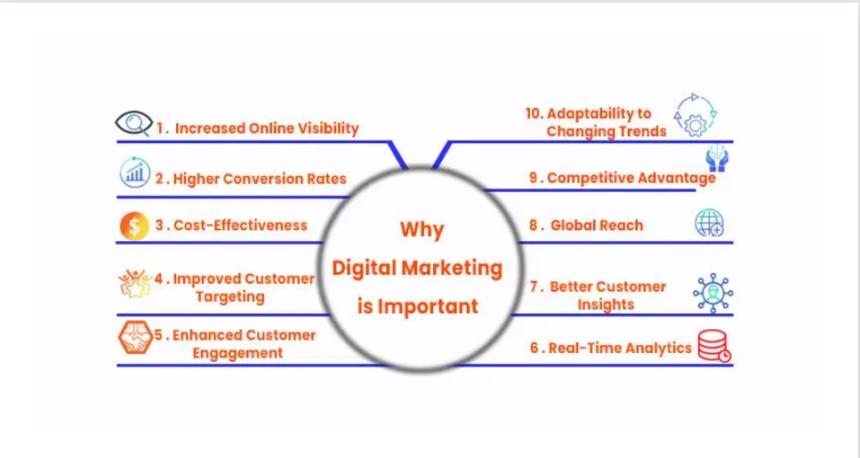As it is apparent today, the market is constantly shifting, and digitalization is a crucial element that cannot be ignored. Organizations are widely adopting digital technologies and innovative processes to remain relevant and efficient in today’s world and to satisfy customers’ demands from digital generations. Businesses must adapt to the rapidly advancing technological environment or risk becoming no longer necessary. Additionally, the competitive landscape now favors those who can leverage digital tools to enhance their operations and customer experiences. Now, let us examine some of the primary areas that have led to the greatly posed pressures for digitalization in the contemporary market.
Enhancing Efficiency and Productivity
Automation of Routine Tasks
Streamlining Operations: Electronic tools replace original functions where tasks used to be done through manual means, which conserves time.
Increased Accuracy: Automation eliminates interferences and biases that could alter the performance and results of tests and analyses.
Integrated Systems
Centralized Data Management: It increases digital linkages across the functions of various businesses by enabling the efficient flow and sharing of data for timely decision-making.
Real-Time Updates: Having access to a vast pool of information from which one can obtain the most current information available increases timeliness and flexibility.
Improving Customer Experience
Personalized Interactions
Customer Data: Customer data is used and evaluated digitally to market and promote or suggest other products and services that the customer may need.
Enhanced Engagement: Service is cast to individuality, which enhances customer satisfaction.
Omnichannel Presence
Consistent Experience: They fulfill customers’ expectations in terms of consistent and integrated multi-channel communication and services.
Convenience: Taking, for instance, teleshopping and mobile shopping services, business and customer interface becomes a simple process.
Facilitating Remote Work
Cloud Computing
Access Anywhere: Implementing cloud-based solutions makes it possible for employees to access relevant work information at their convenience, irrespective of their geographical location.
Collaboration Tools: Microsoft Teams and Slack are examples of the instruments that help to keep the members of remote teams connected and interact in real time.
Digital Infrastructure
Scalability: It indicates that through digital infrastructure, business owners can easily grow or reduce their business operations depending on the existing traffic.
Flexibility: Today’s solutions for remote work allow employers to offer the freedom and options necessary to pursue and retain employees in today’s competitive market.
Driving Innovation
Data-Driven Insights
Business Intelligence: This is important because digitalization can enhance data collection and analysis, which can be valuable for strategic conclusions.
Predictive Analytics: Companies can be aware of future market trends and customer requirements and then design their approaches to deal with these issues.
New Business Models
Digital Products and Services: It can promote the formation of new types of revenues and additional incomes realized with products and services that are digital, including e-books, online courses, or SaaS.
Agility: One benefit of digitization is that it makes it possible for an organization to react rapidly and effectively to changes in the business environment, such as modifications in the marketplace and consumer demands.
Enhancing Sustainability
Reducing Paper Waste
Digital Documentation: The use of documents in either electronic or digital form abolishes the use of paper, thus enhancing the environmental ecosystem.
Eco-Friendly Alternatives: Introducing an alternative to paper cards, such as digital business cards removing the use of cards that are environmentally unfriendly.
Energy Efficiency
Smart Technologies: Promoting and installing efficient digital technologies helps in decreasing the amount of emitted carbon emissions by the companies.
Sustainable Practices: They can enhance transport means control, improving the strategies embraced in resource management and sustainability.
Enhancing Security and Compliance
Advanced Security Measures
Cybersecurity Solutions: Digitalization enables the implementation of robust cybersecurity measures, protecting sensitive data from breaches and cyber attacks.
Encryption and Authentication: Advanced encryption and multi-factor authentication ensure that data is securely transmitted and accessed only by authorized personnel.
Regulatory Compliance
Automated Compliance Tools: Digital tools help businesses stay compliant with industry regulations by automating compliance processes and ensuring adherence to legal standards.
Data Privacy: Implementing digital solutions helps in managing and safeguarding customer data, aligning with data protection regulations like GDPR and CCPA.
Conclusion
Hence, it becomes clear that in today’s market, digitalization is a critical factor that allows for increased efficiency, a better customer experience, remote working, and innovation, and it may result in the promotion of sustainable technological solutions. Therefore, it is possible to have digital business cards as integral working tools both for improving enterprises’ efficiency and for creating a sustainable environment in the future. It is not simply about the fashion of maintaining a firm and adopting the trends; it involves recognizing the contemporary dimensions and how one can make it more durable.
Also Read: Transform Your Business with Pedrovazpaulo Human Resource Consulting







